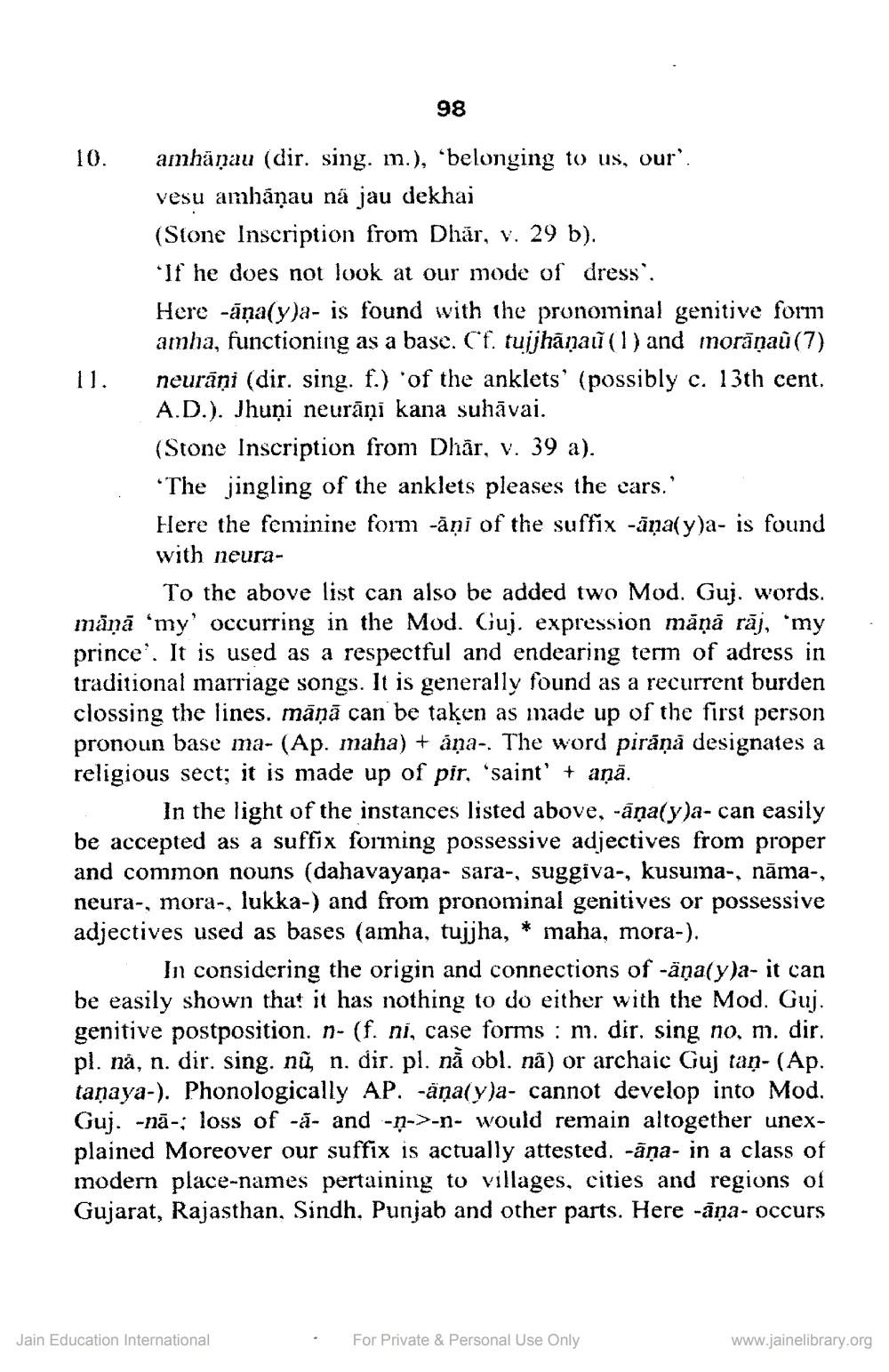________________
10.
98
amhānau (dir. sing. m.), 'belonging to us, our'. vesu amhāṇau nā jau dekhai
(Stone Inscription from Dhär, v. 29 b).
'If he does not look at our mode of dress'.
Here -āṇa(y)a- is found with the pronominal genitive form amha, functioning as a base. Cf. tujjhāņaữ (1) and morāṇau(7) 11. neurāņi (dir. sing. f.) of the anklets' (possibly c. 13th cent. A.D.). Jhuņi neurāņi kana suhāvai.
(Stone Inscription from Dhar, v. 39 a).
'The jingling of the anklets pleases the cars."
Here the feminine form -ānī of the suffix -āṇa(y)a- is found with neura
To the above list can also be added two Mod. Guj. words. māņā 'my' occurring in the Mod. Guj. expression māņā rāj, 'my prince'. It is used as a respectful and endearing term of adress in traditional marriage songs. It is generally found as a recurrent burden clossing the lines. māṇā can be taken as made up of the first person pronoun base ma- (Ap. maha)+ aņa-. The word pirāṇā designates a religious sect; it is made up of pir, 'saint' + aṇā.
In the light of the instances listed above, -āṇa(y)a- can easily be accepted as a suffix forming possessive adjectives from proper and common nouns (dahavayaṇa- sara-, suggïva-, kusuma-, nāma-, neura-, mora-, lukka-) and from pronominal genitives or possessive adjectives used as bases (amha, tujjha, * maha, mora-).
In considering the origin and connections of -äṇa(y)a- it can be easily shown that it has nothing to do either with the Mod. Guj. genitive postposition. n- (f. ni, case forms: m. dir. sing no, m. dir. pl. nå, n. dir. sing. nữ, n. dir. pl. na obl. nã) or archaic Guj tan- (Ap. taṇaya-). Phonologically AP. -äṇa(y)a- cannot develop into Mod. Guj. -nā-; loss of -a- and -->-n- would remain altogether unexplained Moreover our suffix is actually attested. -āṇa- in a class of modern place-names pertaining to villages, cities and regions of Gujarat, Rajasthan. Sindh, Punjab and other parts. Here -āṇa- occurs
Jain Education International
For Private & Personal Use Only
www.jainelibrary.org




